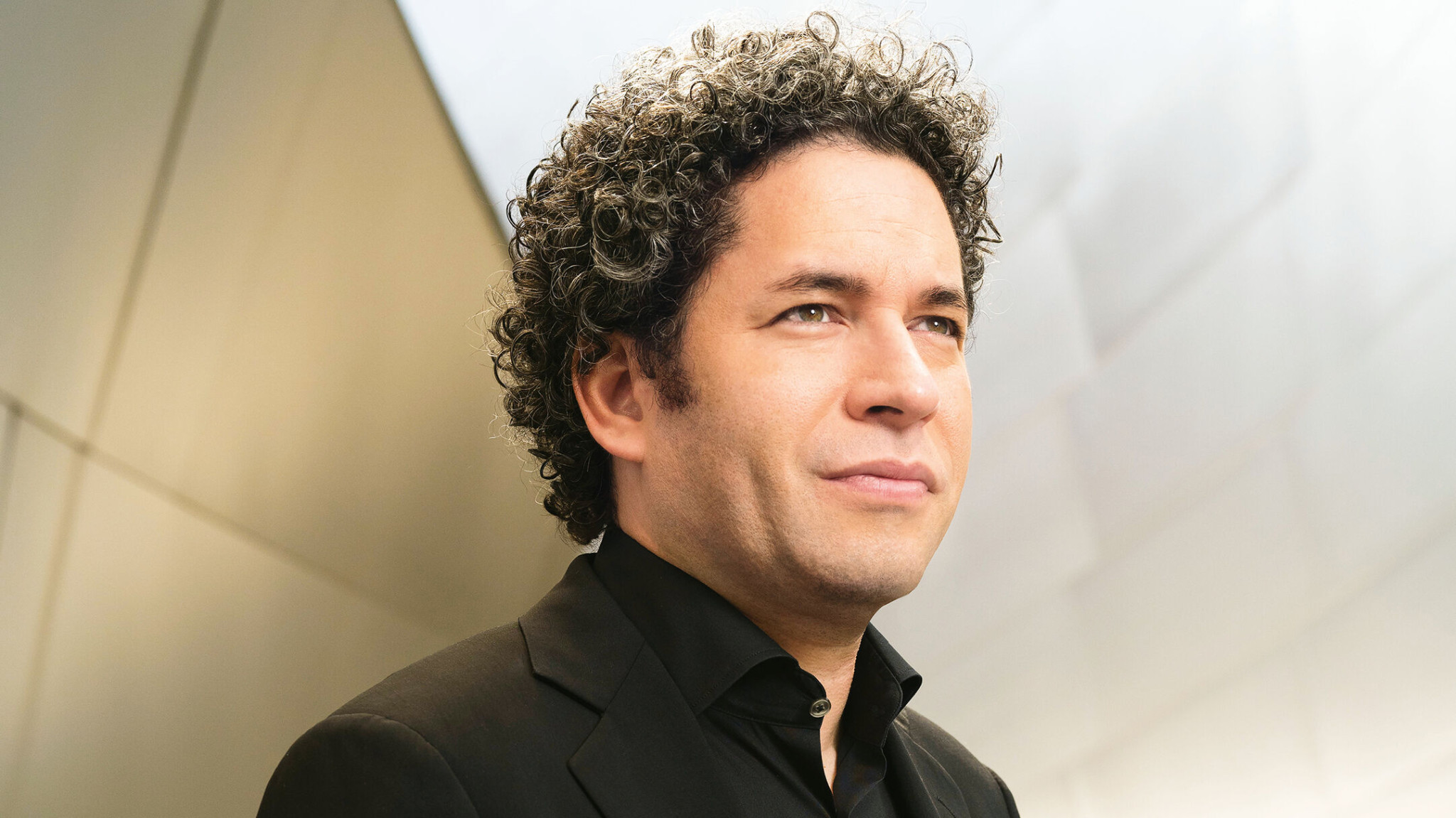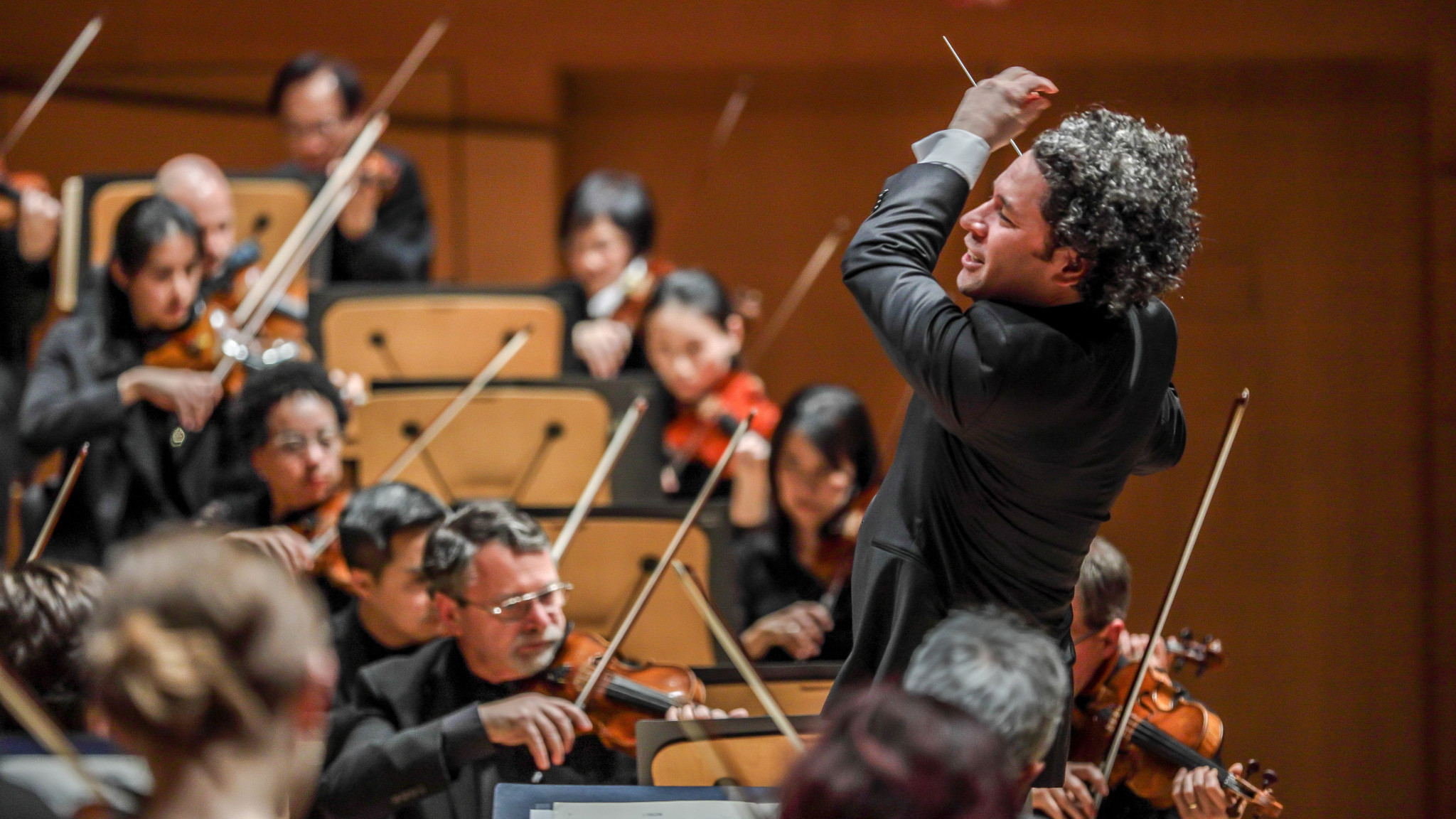Gustavo Dudamel and the Los Angeles Philharmonic Perform Dvořák’s Final Three Symphonies

Gustavo Dudamel and the Los Angeles Philharmonic garnered rave reviews for their performances of Antonín Dvořák’s masterful final three symphonies in February 2020. Hailed as “a revelation” by the Los Angeles Times, their interpretations were recorded live at Walt Disney Concert Hall by Deutsche Grammophon for release as a digital album – the follow-up to the artists’ GRAMMY® Award-winning recording of Mahler’s Symphony No. 8. Out on 29 July 2022, and also available in Dolby Atmos®, Antonín Dvořák: Symphonies Nos. 7 – 9 captures the power and intensity of Dudamel’s vision of three of the greatest works in the symphonic repertoire.
The Los Angeles Philharmonic’s Music & Artistic Director amplifies the turbulent emotions of each work and plunges deep into their often-dark inner worlds, connecting with the music’s spiritual roots in Dvořák’s Czech homeland and reflecting ideas formed during the composer’s time as Director of the National Conservatory of Music of America in New York City.
“Working with my orchestra on Dvořák’s late symphonies was a unique and deeply moving experience, and these three performances are an important addition to our growing catalogue,” comments Dudamel. “I’m grateful to Deutsche Grammophon for recording us with such enthusiasm and sensitivity, and for taking the music we make in Los Angeles and sharing it around the world.”
Mark Swed, veteran classical music critic of the Los Angeles Times, was clear in his verdict: “Performances like this don’t come around every day.” He praised Dudamel’s decision to programme late Dvořák in company with the four symphonies of Charles Ives. The cycle of concerts, he suggested, “could be a milestone … for both the conductor and a startlingly great orchestra.” Bachtrack, meanwhile, noted how conductor and orchestra harnessed the virtues of precision and beauty to a profound feeling for the “inner tumult” of Dvořák’s music: “Crisply delineated rhythms were the current that carried the composer’s handsome melodies aloft, with Dudamel keeping a light hand over the proceedings.”
Dvořák made his name with a series of works that championed Czech national identity, winning international acclaim in the late 1870s and 1880s with pieces such as his Slavonic Dances and Violin Concerto. He composed his Seventh Symphony in 1885 for the Philharmonic Society in London. “God grant that this Czech music will move the world,” he wrote to a friend after drafting its first movement. It did. So, too, did his Eighth Symphony, first performed in Prague in 1890. The work is fuelled by uplifting melodies and the energy of Bohemian dance rhythms.
Dvořák completed his ninth and final symphony, subtitled “From the New World,” in May 1893. Its striking melodic themes draw on his impressions of North America and imaginative interpretation of its music. Henry Wadsworth Longfellow’s epic poem The Song of Hiawatha contributed to the romantic flavour of the composer’s “American” symphony, as did his nostalgia for friends and family back home in Prague.
In March 2021, Gustavo Dudamel and the Los Angeles Philharmonic’s Charles Ives – Complete Symphonies won the coveted GRAMMY® Award for Best Orchestral Performance. Recorded during the same 2020 series of concert performances as the Dvořák symphonies, and released worldwide in January 2021, their interpretations of Ives’s four symphonies were summed up by The Guardian (London) in its five-star review as, quite simply, “a glorious achievement.”





